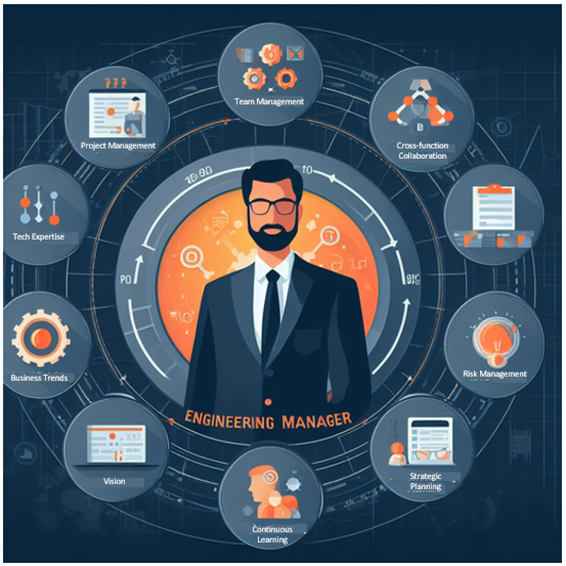Navigating the Transition: From Individual Contributor to Engineering Manager
Engineering Managers need leadership, communication, strategic thinking, and adaptability to navigate team management complexities and achieve success.
Join the DZone community and get the full member experience.
Join For FreeAre you an Individual Contributor (IC) aspiring to step into a leadership role? The journey might seem daunting, but in this article, we'll explore the qualities and qualifications essential for a successful career as an engineering leader and how to actively cultivate them. Drawing from personal experiences and insights, my goal is to provide clarity on the expectations and responsibilities of an Engineering Manager (EM). Hope it will help you!
Qualities and Qualifications
Engineering management demands a unique skill set, combining technical prowess with interpersonal abilities learned through hands-on experience. EMs orchestrate, supervise, and streamline engineering projects, teams, and operations, requiring an intricate understanding of the software engineering lifecycle and business dynamics.
Core Responsibilities

- Project Management: Overseeing project ideation, development, and implementation within defined constraints.
- Team Management: Leading day-to-day team operations, including recruitment, training, and mentorship for enhanced productivity.
- Technical Expertise: Proficiency in relevant technologies, tools, and methodologies.
- Cross-functional Collaboration: Aligning engineering endeavors with organizational objectives through collaboration.
- Risk Management: Identifying and mitigating risks associated with engineering projects, including cost and safety considerations.
- Continuous Learning: Staying updated on emerging technologies and trends for optimized engineering processes.
- Strategic Planning: Establishing clear goals, allocating resources, and managing deadlines based on data-driven insights.
Thriving in this position goes beyond just technical knowledge. It entails a balance between leadership, communication, strategic thinking, and adaptability.

Let’s go over some Key Traits of Exceptional EMs.
- Effective Communication: The ability to convey complex technical concepts to both technical and non-technical stakeholders creates a shared understanding within the team and the organization.
- Empathy and Emotional Intelligence: Understanding and empathizing with team members create a positive and collaborative work environment, building trust and support.
- Delegation Skills and Trust: Effective delegation empowers the team, emphasizing the importance of trust in leadership.
- Flexibility and Negotiation: Navigating trade-offs and being open to compromise are crucial in challenging situations with multiple stakeholders.
- Leadership and Vision: Providing a clear vision, aligning goals, inspiring the team, delivering transparent and constructive feedback, and having a strategic mindset contribute to long-term success.
For a video version of this article:
Conclusion
Success as an Engineering Manager goes beyond technical knowledge; it requires a balance of leadership, communication, strategic thinking, and adaptability. By blending these qualities, an EM can navigate the complexities of team management and contribute to both individual and organizational achievements.
Published at DZone with permission of Roopa Kushtagi. See the original article here.
Opinions expressed by DZone contributors are their own.

Comments